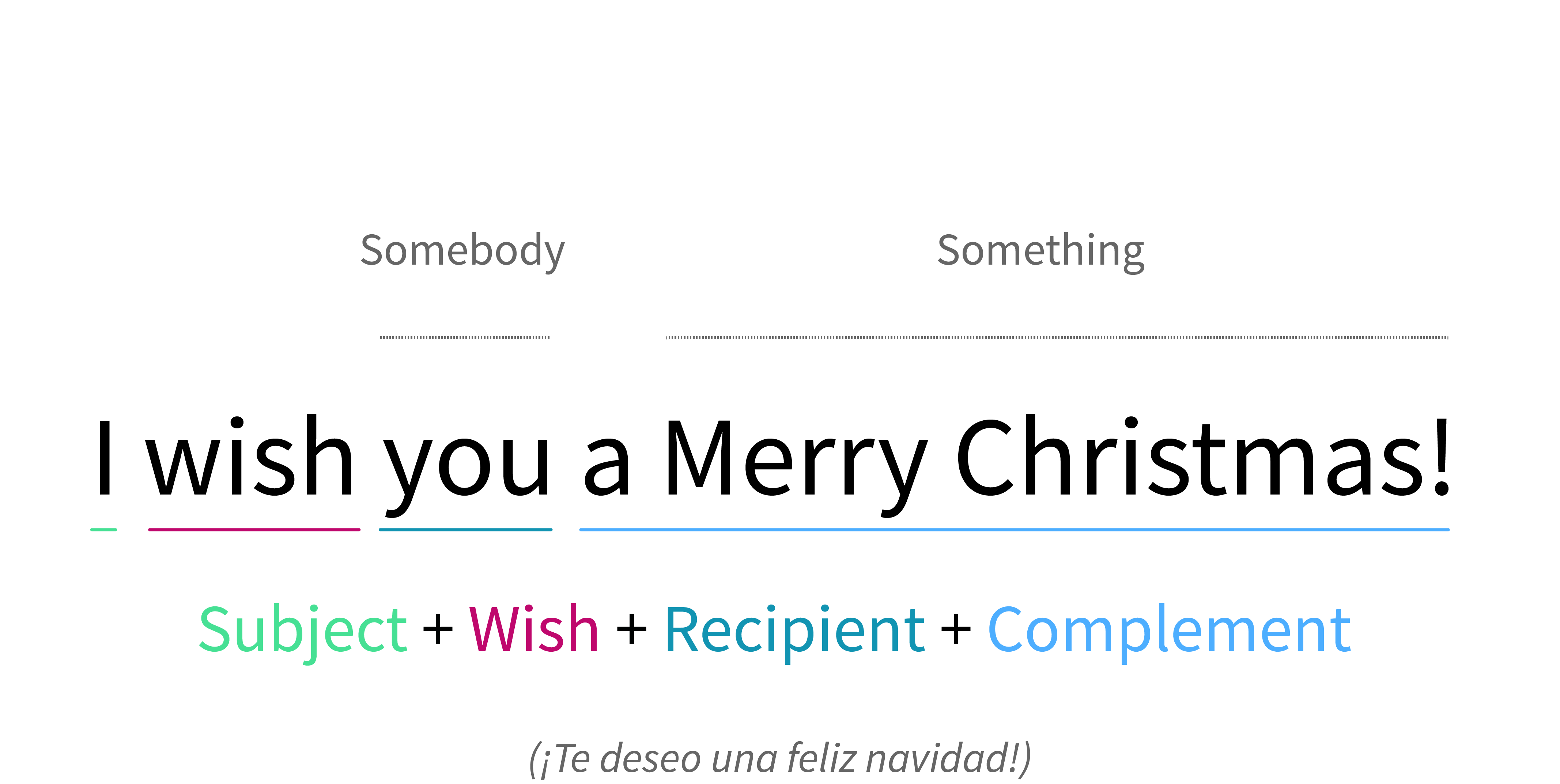
Verb "to wish"
Wish expresses a desire for a situation that doesn't currently exist. It can be used to talk about things or situations that we would like to be different in the present or in the future.
It is also used to express things that are unlikely or impossible. For example:
- I wish I were young again.
(I'm old, and I can't be 15 years old again.) - I wish she lived nearby.
(She lives in another place, and it is not possible for her to live close to me.)
Keep in mind that were can be used instead of was in informal writing or contexts:
- I wish I was famous. (Formal - regular form)
- I wish I were famous. (Informal but also, correct form)
The correct grammar for this is to always use "were" because it's conditional doesn't exist.
"Wish" and modal verbs
Wish + Could
It's used to:
- Express possibility:
"I wish I could be a nurse." - To talk about things or situations in the present or future that you would like to be different:
"I wish you could be here by New Year's Eve."
In this case, could is the simple past form of can.
Wish + Would
Use it to talk about other people who are (or who are not) doing something that you don't like and that you want them to change.
Be careful!
- Is not that common to apply this to ourselves.
- Do not use it to talk about something that nobody can change, except the weather:
"I wish the planet were bigger."
- Do not use it when there is no feeling that somebody change their behavior.
Wish and the past perfect
It is commonly used to talk about regrets from the past.
Use it when you want to express hypothetically a different ending or a consequence of a situation that already happened.
This use of wish is similar to the third conditional.
- I wish I had studied harder for the final exam.
(I studied for the exam, but not enough.)
Different uses of "wish"
With infinitive verbs
This means "would like". It is used in very formal contexts.
Be careful with the continuous tenses because they are not usually used in this case.

To express something
You can use wish to express something to someone. This type of use is mostly presented in set phrases.







